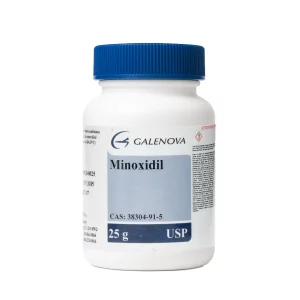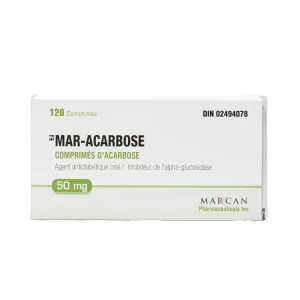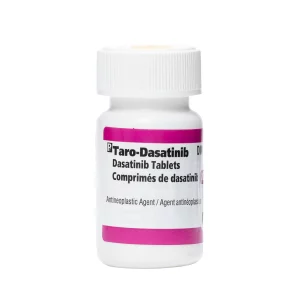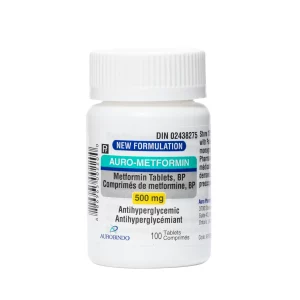Your cart is empty.
Your cart is empty.
Choosing the right medicine for blood sugar control and longevity can feel overwhelming when you’re committed to optimizing your health. Both acarbose and metformin have gained recognition as powerful tools for healthy individuals seeking to maintain their wellness and support longevity goals. Understanding the proper Acarbose dosage, learning about Acarbose vs Ozempic comparisons, and knowing where to Shop Acarbose are important considerations in your health journey.
When evaluating acarbose versus metformin, it’s essential to consider the individual patient’s metabolic profile, therapeutic objectives, and potential contraindications. These agents differ in mechanism, acarbose delays carbohydrate absorption via alpha-glucosidase inhibition, while metformin improves insulin sensitivity and reduces hepatic glucose production. Clinical decisions should be informed by peer-reviewed guidelines and patient-specific factors such as tolerance, comorbidities, and treatment goals. Prescribers are encouraged to consult the latest literature and therapeutic protocols when determining the most appropriate intervention.
Acarbose acts as a carbohydrate absorption modulator. It limits the rapid breakdown of complex carbs into simple sugars during digestion, helping to moderate post-meal glucose elevations. This action is especially useful for individuals whose diets are higher in starches or who experience sharp glucose spikes after eating.
Metformin, by contrast, enhances the body’s insulin efficiency. It lowers the amount of glucose produced by the liver and improves how muscle cells absorb sugar from the bloodstream. Additionally, it may influence gut microbiota and certain hormonal pathways, adding to its systemic metabolic effects. Though their methods differ, both compounds support healthy glucose management. Emerging studies continue to explore their potential roles in long-term metabolic health and healthy aging.

Acarbose slows the breakdown of complex carbohydrates by inhibiting alpha-glucosidase enzymes in the digestive tract. As a result, carbohydrate absorption becomes more gradual, which may reduce sudden glucose spikes following meals.
For optimal timing, it is typically introduced alongside food intake to synchronize with digestion. This targeted activity supports a specific approach to postprandial glucose control.
Metformin primarily reduces hepatic glucose production and improves cellular insulin sensitivity. These effects contribute to more stable fasting glucose levels and improved metabolic flexibility.
Additionally, metformin has been associated with improved mitochondrial efficiency and cellular energy management through pathways such as AMPK activation, mechanisms that are currently under investigation in longevity and metabolic health research.

Weight-related outcomes differ between these compounds. Acarbose may support modest changes in body weight by limiting calorie absorption from carbohydrates. Metformin, in contrast, is often linked to gradual weight reduction, usually within the range of a few pounds, particularly when paired with structured nutrition and activity plans.
Timeline-wise, weight-related effects with acarbose may be observed after 2–3 months, whereas metformin often shows results within 4–6 weeks. Both benefit from integration into broader health optimization programs.
Research into acarbose and metformin for longevity has yielded encouraging, though mechanistically different, outcomes. Animal studies involving acarbose have shown lifespan extension, up to 17% in some male subjects, likely due to improved glycemic stability and reduced cellular stress.
Metformin, meanwhile, has become the focus of human-based longevity research. Observational data links its use to lower rates of age-related conditions such as cardiovascular disease, cognitive decline, and cancer. Ongoing clinical efforts, including the TAME trial, are evaluating its potential role in extending healthspan.
Acarbose and metformin are generally introduced at lower starting levels and adjusted over time, depending on individual tolerance and wellness strategy alignment.
Acarbose is usually incorporated at meal times for focused postprandial impact. Metformin, on the other hand, is often taken once or twice daily and does not require synchronization with meals, offering more flexibility in routine.
Precise intake strategies should always reflect expert recommendations and be tailored to personal health context, taking into account digestive tolerance and overall metabolic status.
Comparative studies indicate that both acarbose and metformin can significantly lower blood glucose levels, though their strengths vary. Metformin generally yields more pronounced reductions in HbA1c, with a typical range of 1-2%. Acarbose tends to deliver more targeted reductions, around 0.7–1.5%, with particular emphasis on post-meal glucose moderation.
This makes acarbose a preferred choice when managing glucose excursions after eating, while metformin supports more consistent control throughout the day and night.
Both compounds may affect the digestive system during the initial adjustment period. Acarbose commonly leads to temporary gastrointestinal discomfort, such as bloating or flatulence, which often subsides within several weeks.
Metformin is usually better tolerated but may occasionally cause mild nausea or stomach upset. These effects tend to diminish with gradual introduction and food pairing.
Generic versions of both acarbose and metformin are widely available and priced accessibly. Metformin typically offers lower per-dose costs and is stocked more broadly across global markets.
From a long-term perspective, both remain cost-effective for individuals focused on metabolic health and aging support.
Acarbose may be considered when glucose management needs are focused around meals, especially when dietary patterns include high carbohydrate content. Its mechanism is particularly useful for individuals looking to smooth postprandial spikes without significantly altering fasting glucose metrics.
It may also serve as an alternative in cases where broader metabolic agents are not well tolerated.
Metformin may be more aligned with those seeking comprehensive metabolic optimization, including support for fasting glucose levels, insulin sensitivity, weight management, and mitochondrial health.
Its more flexible intake pattern and robust research background make it a widely used option in health-focused programs.
Concurrent use of acarbose and metformin is a well-documented approach in certain health contexts. Because their mechanisms do not overlap, combining them may enhance glycemic stability and deliver complementary metabolic benefits.
However, careful monitoring is generally advised when introducing both agents in sequence to assess individual response and digestive tolerance.
Choosing between acarbose and metformin involves reviewing personal health objectives, dietary habits, and preferences regarding timing, tolerance, and daily routine. Each agent brings distinct strengths, acarbose for precise post-meal glucose moderation, and metformin for broader systemic support.
The right fit is often determined by matching the compound’s properties with targeted wellness priorities.
Acarbose acts immediately during digestion to moderate carbohydrate absorption. Metformin takes a few weeks to reach full efficacy but offers more sustained systemic support.
Transitioning between these compounds is feasible when done gradually and with appropriate tracking of metabolic markers.
Metformin has extensive research backing its role in glucose regulation and prevention of progression from prediabetic states. Acarbose has shown positive results as well, but the data is less robust by comparison.
Those using acarbose may benefit from reducing simple sugars to ease digestion. Overall, balanced dietary habits tend to improve the effectiveness of both compounds.
A trial period of 8–12 weeks is typically sufficient to gauge the impact on energy, glucose stability, and digestion. Consistent tracking provides valuable insights during this period.
While both show promise, metformin currently has broader human-based data supporting its potential benefits in healthy aging.
Chang, C. H., Chang, Y. C., Lin, J. W., Chen, S. T., Chuang, L. M., & Lai, M. S. (2015). Cardiovascular risk associated with acarbose versus metformin as the first-line treatment in patients with type 2 diabetes: A nationwide cohort study. The Journal of Clinical Endocrinology & Metabolism, 100(3), 1121-1129.
https://pubmed.ncbi.nlm.nih.gov/25555040/
Hoffmann, J., & Spengler, M. (1997). Efficacy of 24-week monotherapy with acarbose, metformin, or placebo in dietary-treated NIDDM patients: The Essen-II study. The American Journal of Medicine, 103(6), 483-490.
https://pubmed.ncbi.nlm.nih.gov/9428831/
Li, J., Bai, L., Wei, F., Zhao, J., Wang, D., Xiao, Y., Yan, W., & Wei, J. (2019). Comparison of acarbose and metformin therapy in newly diagnosed type 2 diabetic patients with overweight and/or obesity. Current Medical Research and Opinion, 35(4), 681-688.
https://pubmed.ncbi.nlm.nih.gov/27052634/
Yang, S., Zhao, Q., Chen, W., Wang, B., Chen, Y., Ye, Y., Liu, J., Zhang, Q., Yang, F., Zhang, W., & Shen, A. (2022). An overview of metformin in aging and aging-related diseases. Aging and Disease, 13(4), 1018-1037.
https://pmc.ncbi.nlm.nih.gov/articles/PMC8965502/





Unlock savings on bundles and elevate your online experience today!